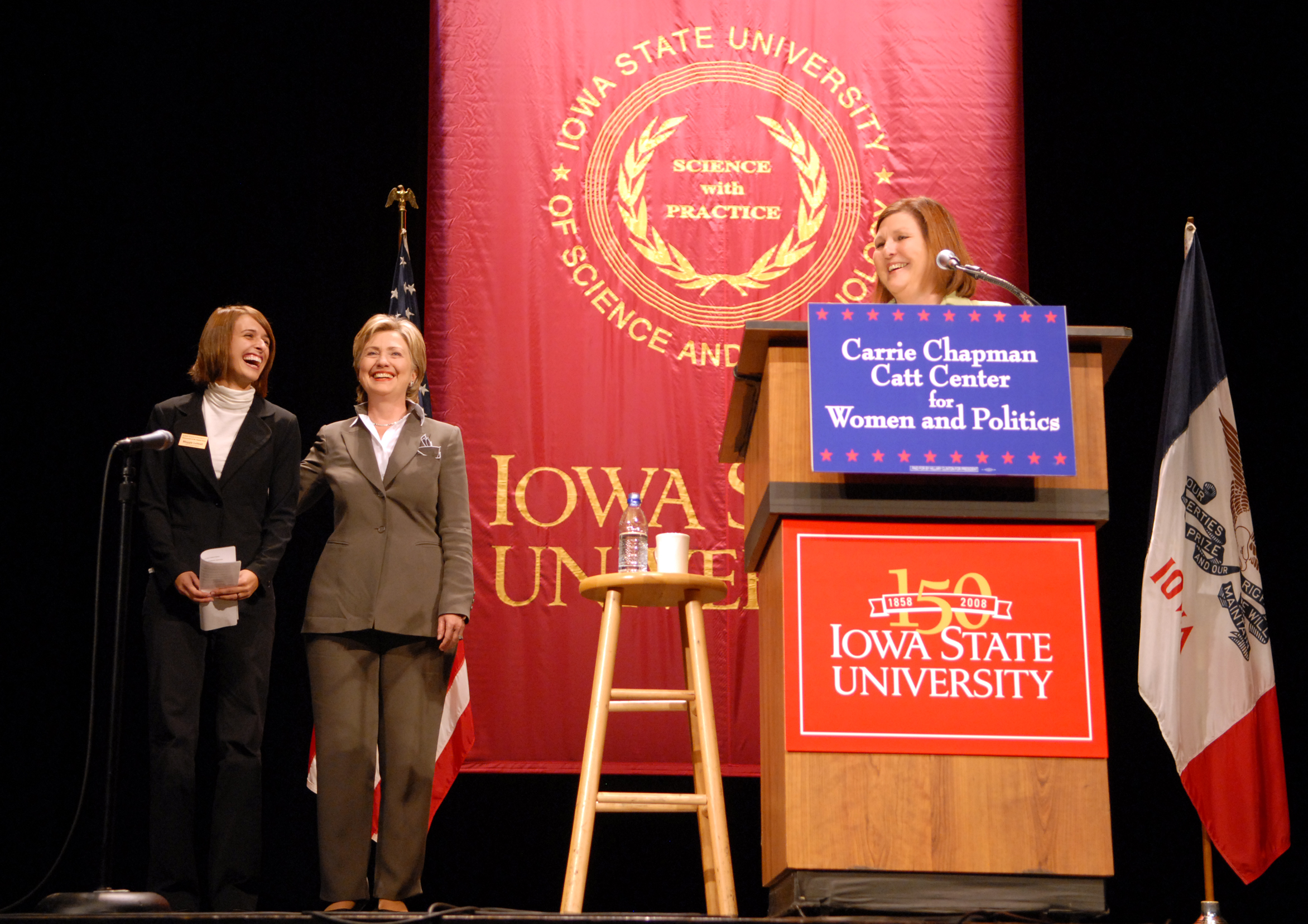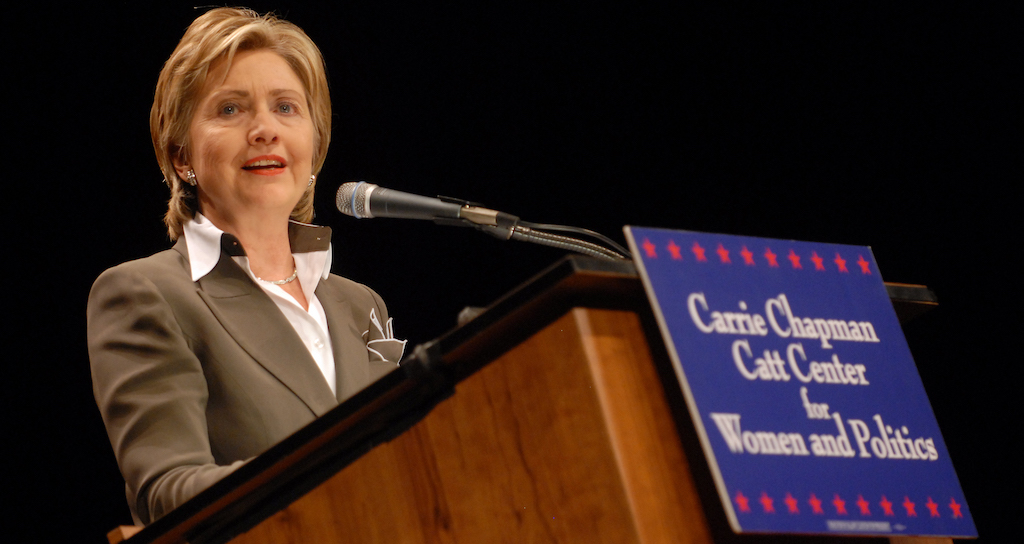If Hillary Clinton shatters what she once called the "highest and hardest glass ceiling" this November, it will not only have historical significance. It could inspire a future generation of female politicians to seize the falling pieces and see themselves in the reflection.
Dianne Bystrom, director of the nonpartisan Carrie Chapman Catt Center for Women and Politics at Iowa State University, says research shows there is a clear role model effect when women win elected office.
"Every piece of research I've seen shows that if a woman achieves a high elected office, it has a role model effect. Not only on women in her own party, but on women in the other party."
In 2014, Iowa elected Republican Senator Joni Ernst (psychology, '92) as the first woman to represent Iowa in Congress. In 2016, three Iowa women from the Democratic Party are challenging Republican incumbents to be next: Kim Weaver (speech communication, '88) in the 4th congressional district, Monica Vernon in the 1st congressional district and Patty Judge for a U.S. Senate seat.
That may not be a coincidence.
"Studies show when you elect your first woman governor or first woman senator, it tends to have an effect on the number of women that run in both parties," Bystrom said, who helps Republican and Democratic women prepare for elected office through the Catt Center's annual Ready to Run event.
"Studies show when you elect your first woman governor or first woman senator, it tends to have an effect on the number of women that run in both parties."
The United States currently ranks 96th globally for women serving in national parliaments, according to the Inter-Parliamentary Union, with women holding 20 percent of U.S. Senate seats and 19.4 percent of U.S. House seats. Women currently serve as governors of only six states.

Bystrom believes a woman in the White House would impact women's political ambitions.
"Studies have shown women just don't see themselves in office, even if they are qualified," she said. "Surveys have been sent to women who have the same background, characteristics and experience as men, and women are unlikely to say that they feel qualified for office while men feel qualified."
When women do run for office, they can face unique challenges.
"Women candidates tend to face what's called a ‘double bind,’” Tessa Ditonto said, assistant professor of political science. “Voters expect women candidates to be perfectly in the middle between feminine and masculine. If a woman is too masculine, if she comes across as too aggressive, too assertive, too tough, then she's not likable. But if she comes across as too feminine, people don't take her seriously because she isn't seen as competent enough or strong enough to be a leader.”
"Voters expect women candidates to be perfectly in the middle between feminine and masculine."
Ditonto uses simulation software to research gender stereotypes in voting. She creates fictitious yet realistic candidate profiles with policy positions and backgrounds, then reviews how and if participants interact with the available information before “voting.” She can manipulate candidate demographics to explore how factors like gender, age or race affect voter attitudes and what campaign information they choose to access.
Voter use of gender stereotypes has shifted since the 1990s, when research still revealed consistent evidence of women candidates viewed in line with gendered stereotypes, like being more compassionate or less competent, Ditonto said.
Today, it is more nuanced and more complex.
“More recent work finds less evidence that voters automatically or directly apply these kinds of stereotypes to female candidates,” she said. “Studies that just ask people about their perceptions, in fact, find very little evidence of voters still hanging on to these stereotypes. However, other experimental work, including my own, seems to suggest these stereotypes can play a role, but they don't have to in every context, and the way they affect voters is not as straightforward as it once was or we once thought it was.”
Though part of the primary news cycle focused on criticism of women who would vote based on gender, Ditonto said the symbolism of a woman in the White House still holds importance, regardless of party.
"Seeing people like you in positions of power, whether based on gender, ethnicity, race or religion, increases feelings of trust in government, increases feelings of legitimacy and increases the sense that you are part of the system," she said. "As a group, women, from the founding of our country up until 1920, were overtly left out of the political system. For young girls and even women, to see a woman in a position of such power, does have an important symbolic function, apart from any substantive policy decisions it might make.”
Even as women are elected to public office in increasing numbers, their voices are underrepresented in political communication archives. The Carrie Chapman Catt Center for Women and Politics maintains an online archive devoted to women's political speech, including speeches by the nation's first female major party nominee, Hillary Clinton, dating back to her 1969 Wellesley College student commencement speech.
